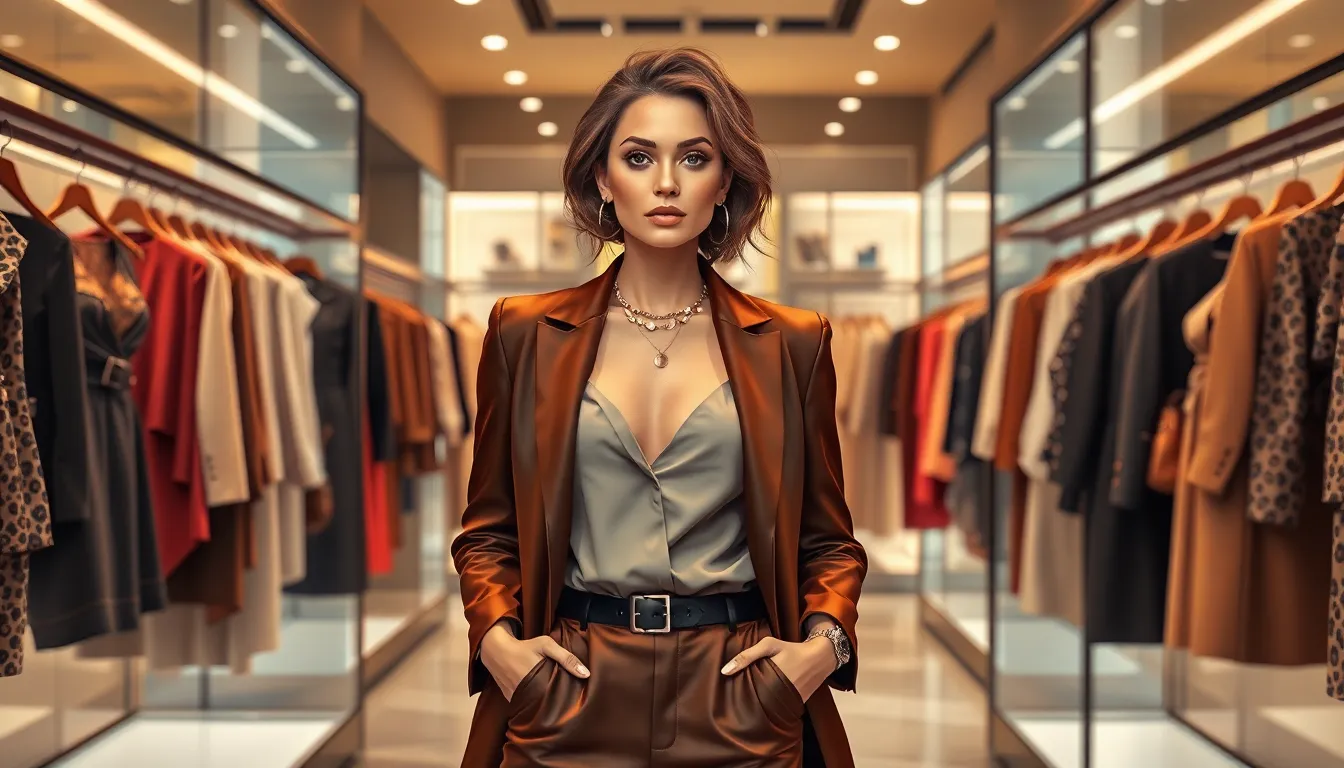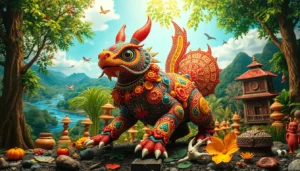Table of Contents
ToggleLuxury fashion isn’t just about looking good; it’s about making a statement without uttering a word. Imagine stepping into a room and instantly transforming the atmosphere with a single glance at your designer ensemble. It’s like wearing a secret handshake that only the fashion elite understand.
In a world where trends come and go faster than a flash sale, luxury fashion stands tall, flaunting its timeless appeal. From exquisite fabrics to impeccable craftsmanship, it’s the kind of indulgence that makes your bank account weep and your wardrobe sing. So grab your favorite oversized sunglasses and prepare to dive into the fabulous realm where style meets sophistication, and let’s explore why luxury fashion isn’t just a trend; it’s a lifestyle.
Overview Of Luxury Fashion
Luxury fashion represents not just clothing but an experience that encompasses artistry and exclusivity. Designers incorporate high-quality materials, which elevate the standard of craftsmanship, making each piece unique. Consumers recognize this distinction, choosing luxury fashion for its durability and timeless style.
Brands like Chanel and Gucci exemplify the fusion of heritage and innovation, attracting fashion enthusiasts worldwide. Unique craftsmanship defines luxury fashion, turning garments into collectibles. From bespoke tailoring to limited edition runs, the exclusivity ensures that luxury items remain coveted.
Sustainable practices are increasingly influencing luxury fashion. Ethical sourcing and eco-friendly production methods resonate with modern consumers, enhancing brand value. Innovative companies prioritize environmental impact while maintaining high-quality standards.
Cultural significance also shapes luxury fashion. Influences from art, architecture, and global trends contribute to the evolving landscape. The connection between luxury fashion and personal identity becomes increasingly evident, as individuals express sophistication through their choices.
In addition, the digital age transforms how luxury fashion is experienced. Online platforms give consumers access to exclusive collections and unique collaborations. Fashion shows and brand announcements gain global reach, enhancing visibility and engagement.
Ultimately, luxury fashion embodies a lifestyle choice reflecting personal taste and status. Each purchase represents more than a transaction; it signifies a commitment to quality, design, and cultural relevance. These factors combine, solidifying luxury fashion’s lasting appeal in a rapidly changing world.
Key Characteristics Of Luxury Fashion

Luxury fashion is defined by distinct qualities that set it apart from mass-produced apparel. These characteristics reflect an undeniable commitment to opulence and sophistication.
Quality And Craftsmanship
Remarkable quality and impeccable craftsmanship serve as the foundation of luxury fashion. Designers engage skilled artisans who dedicate time and effort to create garments that showcase exceptional attention to detail. High-end materials such as silk, cashmere, and fine leather contribute to the overall durability of these pieces. Investments in rigorous quality control processes ensure each item meets stringent standards. Pieces that exemplify this level of craftsmanship include the trademark jackets from brands like Chanel and the tailored suits from Armani. Consumers appreciate the longevity of luxury items as they often become wardrobe staples.
Exclusivity And Scarcity
Exclusivity and scarcity elevate luxury fashion to a status symbol. Limited editions and unique designs create a sense of rarity, making each item highly sought after. Brands often release small quantities to maintain allure and emphasize uniqueness. The waitlist for a coveted Hermès Birkin bag exemplifies this exclusivity, with only a few available each season. Collectors and enthusiasts cherish these items not just for their aesthetic value but also for the prestige they confer. Luxury fashion’s connection to limited availability reinforces its appeal and drives consumer desire.
Major Luxury Fashion Brands
Major luxury fashion brands define not just style but cultural movements. Their impact shapes the fashion landscape significantly.
Historical Context
Historical roots reveal how luxury fashion emerged from royal courts and artisan guilds. In the 19th century, brands like Louis Vuitton and Chanel began crafting iconic pieces, establishing early foundations. The craftsmanship emphasized quality and exclusivity, attracting a wealthy clientele. Throughout the 20th century, global events influenced these brands, merging traditional techniques with modern aesthetics. This evolution laid the groundwork for luxury fashion’s current status as a symbol of prestige and sophistication.
Current Market Leaders
Current market leaders dominate the luxury fashion sector through innovation and timeless appeal. Brands such as Gucci, Chanel, and Hermès consistently release collections that blend heritage with modern trends. Revenue figures support their influence; Hermes reported $10 billion in annual sales in 2023, solidifying its market position. Sustainability initiatives emerge as vital components, appealing to an eco-conscious consumer base. Additionally, digital transformations bolster these brands’ reach, enhancing online shopping experiences and direct engagement. Overall, their ability to adapt while maintaining core values defines their leadership in luxury fashion.
Trends In Luxury Fashion
Luxury fashion continually adapts to reflect societal values and market demands. Two significant trends shaping the industry today include sustainability and digital transformation.
Sustainability In Luxury Fashion
Sustainability influences decisions among luxury brands, driving a shift toward ethical practices. Many designers prioritize eco-friendly materials, ensuring transparency in production processes. Brands like Stella McCartney lead the way, establishing models that emphasize animal welfare and sustainable sourcing. Consumers increasingly seek out collections that not only resonate with style but also uphold environmental integrity. Companies investing in circular fashion, where garments are reused or recycled, appeal to eco-conscious shoppers. Through these efforts, luxury fashion merges timeless elegance with responsible consumerism.
Digital Transformation
Digital transformation reshapes how luxury fashion engages consumers. Online platforms provide access to exclusive collections, emulating in-store experiences through virtual showrooms. Social media platforms allow brands to communicate directly with audiences, fostering community around their narratives. Augmented reality tools enable customers to visualize products before purchase, enhancing the shopping experience. Additionally, luxury companies are leveraging data analytics to understand consumer behavior and preferences. This focus on connectivity strengthens brand loyalty in a rapidly evolving market.
Luxury fashion represents more than just clothing; it’s a declaration of identity and a commitment to quality. As the industry evolves with sustainability and digital engagement at the forefront, it continues to attract discerning consumers seeking both style and substance. The timeless appeal of luxury brands is rooted in their ability to blend tradition with innovation, creating pieces that not only enhance personal style but also resonate with cultural significance. In a world where fashion trends come and go, luxury fashion remains a powerful force, embodying sophistication and exclusivity that captivates individuals everywhere. Embracing this lifestyle choice allows one to celebrate artistry and craftsmanship while making a statement that transcends time.




